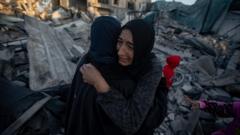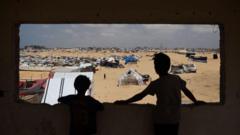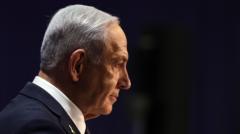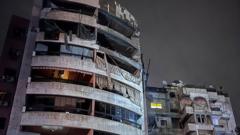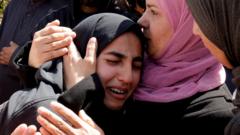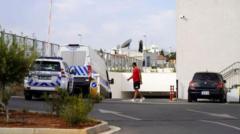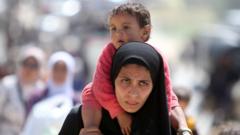The Israeli military launched airstrikes on the southern outskirts of Beirut on March 31, marking the second attack in less than a week. This escalation comes after a U.S.-brokered cease-fire between Israel and Hezbollah was established in November 2024, aiming to prevent further conflict in a region that has experienced one of its deadliest wars in decades.
Israel Strikes Beirut Suburbs: Rising Tensions with Hezbollah

Israel Strikes Beirut Suburbs: Rising Tensions with Hezbollah
Recent military actions by Israel raise concerns over the stability of cease-fire agreements with Hezbollah in Lebanon.
According to Israeli military officials, the latest strike targeted a Hezbollah operative believed to be involved in planning an imminent attack against Israel. The military described the individual as posing an immediate threat, specifically noting that the Dahiya area is a significant Hezbollah stronghold. There was no immediate reaction from Hezbollah regarding the airstrikes.
This attack follows another airstrike conducted by Israel on a similar location just days prior, which had come in response to rocket fire from Lebanon into northern Israel. While Hezbollah denied any knowledge or involvement in the rocket attacks, it stated its commitment to the ongoing cease-fire. However, the situation remains precarious as reports indicate multiple fatalities from recent Israeli airstrikes in southern Lebanon as tension escalates.
This renewed violence ignites concerns regarding the future of the cease-fire, previously seen as a measure to maintain peace after the recent outbreak of hostilities. The background of this conflict stems from the ongoing Gaza war, which saw escalated military actions from Hezbollah toward Israeli forces in solidarity with Hamas following their major attack on Israel in October 2023.
In this ever-shifting landscape, the dynamics between Israel, Hezbollah, and Hamas continue to evolve, emphasizing the urgent need for vigilance and political discourse to safeguard peace.
This attack follows another airstrike conducted by Israel on a similar location just days prior, which had come in response to rocket fire from Lebanon into northern Israel. While Hezbollah denied any knowledge or involvement in the rocket attacks, it stated its commitment to the ongoing cease-fire. However, the situation remains precarious as reports indicate multiple fatalities from recent Israeli airstrikes in southern Lebanon as tension escalates.
This renewed violence ignites concerns regarding the future of the cease-fire, previously seen as a measure to maintain peace after the recent outbreak of hostilities. The background of this conflict stems from the ongoing Gaza war, which saw escalated military actions from Hezbollah toward Israeli forces in solidarity with Hamas following their major attack on Israel in October 2023.
In this ever-shifting landscape, the dynamics between Israel, Hezbollah, and Hamas continue to evolve, emphasizing the urgent need for vigilance and political discourse to safeguard peace.



